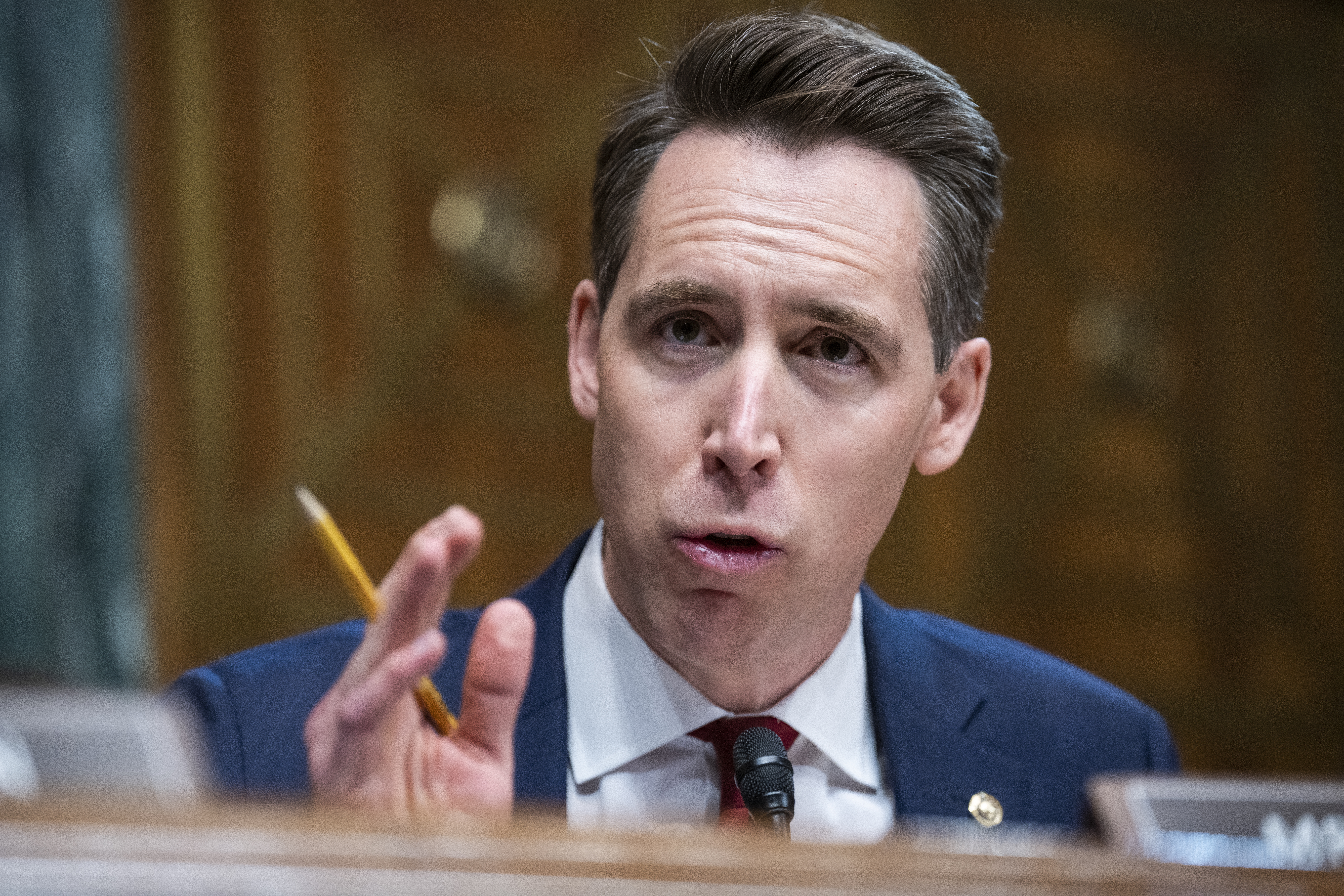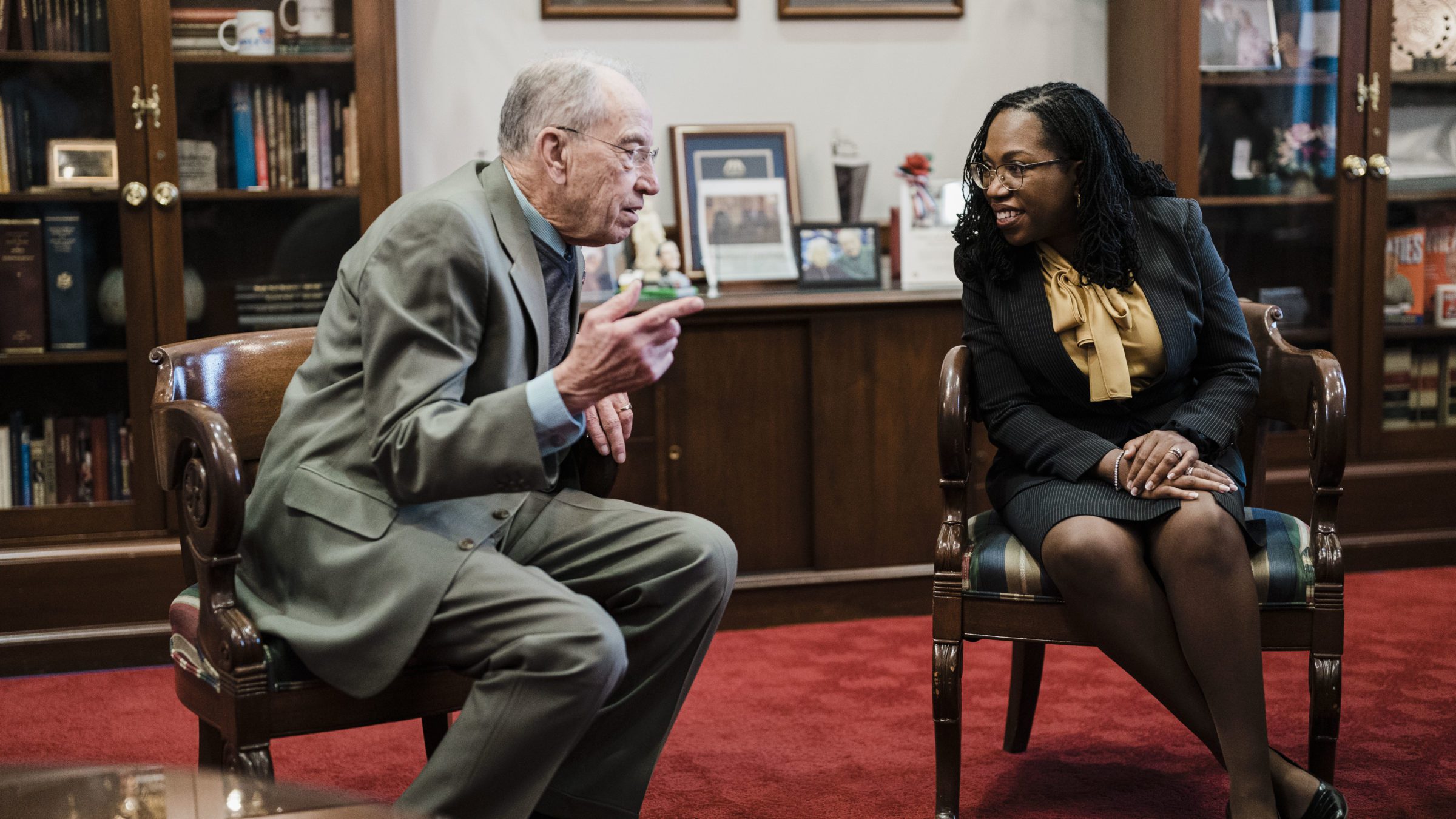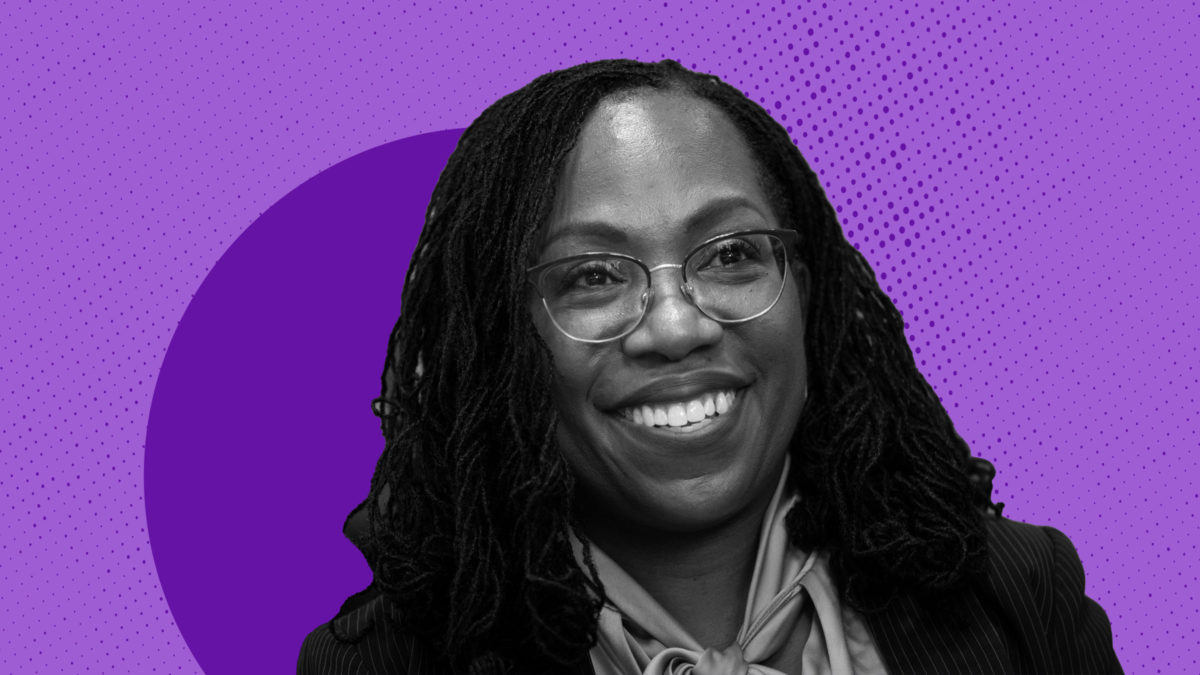Last month, Missouri Senator Josh Hawley sat in front of Nina Morrison and told her he would never support her nomination to the federal bench. “I will oppose you and anyone else the administration sends to us who do not understand the necessity of the rule of law,” he said to Morrison, whom President Joe Biden nominated to a federal district court in New York.
His opposition, at least in theory, was not Morrison’s politics but her previous work. For 20 years, Morrison has worked for the Innocence Project, the country’s most prominent organization fighting to free wrongfully convicted people from prison. Morrison herself has helped exonerate 30 people, including people who would otherwise have been strapped to a bed and executed. As part of her work, she’s also encouraged prosecutors to create conviction integrity units to reinvestigate cases that may have resulted in wrongful convictions.
This, apparently, is beyond the pale for Senate Republicans. Texas Senator Ted Cruz called Morrison’s nomination “part of a pattern from this administration,” lamenting that “Democrats in the Senate…will vote to [confirm] yet another judge who will let more violent criminals go.” He didn’t stop there. “The whole of your record is deeply disturbing,” he told her. “Skyrocketing crime rates…are the direct result of the policies you’ve spent your entire lifetime advancing.” It was not just incendiary but bizarre; Morrison, to reiterate, has spent her career advocating for the innocent.
As usual, this was political posturing disguised as principle, an empty show of bravado by men willing to sacrifice anything for even a moment of Fox News applause. But it was also an ominous bellwether for the upcoming confirmation hearing of Ketanji Brown Jackson, Biden’s nominee to replace the departing Justice Stephen Breyer on the Supreme Court. As the first Black woman nominated for the country’s highest court, much has been made of the demographic diversity she would bring to the bench. But there’s another crucial record Jackson may set: If confirmed, Jackson would become the only former public defender ever nominated to the Supreme Court, and the first justice with indigent defense experience since Justice Thurgood Marshall retired 30 years ago. Already, Republicans have signaled their intent to use this record as a weapon against her. After all, as a public defender, Jackson’s job was to provide her clients with a strong defense—even to those clients who were guilty.
But what Republicans see as a liability is her greatest advantage. Progressives have criticized the senators who came after Morrison, emphasizing that her work served the innocent. Yet this is largely a distinction without a difference. Morrison and Brown’s work circle the same goal: demanding liability from the carceral state. On a broad scale, such systemic responsibility may be impossible, but in individual cases, it can be the difference between life or death. Ultimately, the question should not be about the culpability of their clients, but the accountability of the system.

Josh Hawley, a person who claims to have read the Constitution, questions Nina Morrison at her confirmation hearing last month (Tom Williams/CQ-Roll Call, Inc via Getty Images)
Traditionally, the fastest way to the bench has been through a prosecutor’s office. This is true across the board, from trial judges on the state level all the way up to the U.S. Supreme Court. Currently, seven of the nine justices have some kind of prosecutorial experience. At the end of the Trump presidency, 318 federal judges were former prosecutors, per the Cato Institute; just 38 were former public defenders. State courts are also swimming with prosecutors, who make up 37 percent of state supreme court justices; only 7 percent, by contrast, were previously public defenders. Both parties are responsible for this fervent push to put more prosecutors in robes. Although just 3 percent of practicing lawyers are prosecutors, they made up about 41 percent of President Barack Obama’s appeals court nominees, and 33 percent of President Donald Trump’s.
It’s a trend that has only gotten worse. Over the past forty years, our incarceration system has grown alarmingly, mutating into the gargantuan monstrosity it is today. Many people, including the increasingly punitive judiciary, are to blame. It’s worth mentioning that, over roughly the same time period, the number of Supreme Court justices with prosecutorial experience has increased threefold.
To understand why criminal defense attorneys remain so underrepresented in the judiciary, you need only look to last November, when Charles Fleming, a public defender nominated to serve as a federal judge in Ohio, sat in front of the Senate Judiciary Committee as Tennessee Senator Marsha Blackburn went after him for representing clients accused of crimes like statutory rape. “We’ve seen a number of public defenders nominated in this administration,” said Iowa Senator Chuck Grassley. “I’ve spoken before about the need to determine whether a nominee is a Bill of Rights judge and not a criminal defense judge. From his record, I’m concerned Mr. Fleming falls into the second category.”
This, of course, is what Grassley and his counterparts have overlooked for decades: By definition, a “criminal defense judge” is a Bill of Rights judge. It doesn’t matter whether a client is guilty or innocent; nor does the severity of the charge. Defense attorneys, and public defenders in particular, are the only thing standing between one individual and the power of the entire state. This is why the Constitution articulates particular protections for defendants: Without them, there is none of the liberty those same Republican senators purport to value.
Regardless of whether or not you ever find yourself the subject of a criminal trial, whether or not the government adequately protects the rights of criminal defendants affects you, too. Nowhere is government impunity more obvious than in the criminal legal system, where law enforcement wields their authority with equal parts cruelty and carelessness. This is largely why public defenders do the work they do: because they recognize the impact such a brutal system inflicts on the powerless.

Iowa Senator Chuck Grassley, presumably asking Ketanji Brown Jackson if she’d be a “Bill of Rights judge” (Kent Nishimura / Los Angeles Times via Getty Images)
If Republicans were truly concerned about Big Government, they’d praise Jackson’s nomination. But as of late, they have remained curiously silent about the cruel overreach of the criminal justice system unless the defendant in question stormed the Capitol last year. Otherwise, the only thing that seems to bother these senators about a bloated carceral infrastructure is the fact that a few judicial nominees were willing to represent needy clients.
The fact that prosecutors remain drastically overrepresented on the bench is, primarily, a reflection of political opportunism. It’s easy for electoral opponents or partisan adversaries to comb through a public defender’s clientele and cherry-pick those accused of the most heinous crimes. (In states where judges are elected, former public defenders have had to deal with TV ads listing the bad things their clients were accused of.) And given the incessant fearmongering around crime recently, this moment is particularly ripe for cynical exploitation. For politicians in charge of appointing judges, it can be easy to throw up your hands and just pick another generic prosecutor whose nomination won’t trigger another round of ominously-narrated black-and-white ads blasting them for doing their job.
The fact that the bench is overrun with former prosecutors is also reflective of the relatively common belief that defending needy clients is seedy work. Even those who understand that public defense is a constitutional right often fail to accord it the respect it deserves, seeing it more as a necessary evil. The fact that judicial nominees face more scrutiny for trying to keep people out of prison rather than putting them in is part of the reason our country is the world’s most carceral.
I keep going back to Grassley’s concern that Fleming, as a judge, would be biased against the criminal justice system. The racial implications of such a statement are surreal enough, given that Black men like Fleming have suffered drastically from our societal obsession with punishment. But Grassley’s insinuation that bias against the carceral state is harmful—or that such a bias can even exist—is to invert the obligations he has as a senator, and reflects the warped perspective of so many elected officials who believe that the government is entitled to trust it has not earned. That Grassley is more worried about Fleming’s imagined bias against the system than the system’s demonstrable bias against people who look like Fleming is yet another indication of a perpetually self-serving power structure, where skepticism of the system automatically disqualifies a person from participating in it.
Even if she is confirmed, Jackson will be in the minority of what is already the most conservative and reactionary Supreme Courts of our lifetime. But for the first time in decades, it will at least have a justice who understands that it is those with the least power who require the most protection. To fight for the accused is to play a crucial part in the ongoing struggle for justice. The guilty deserve the protection afforded by Brown, Jackson, and Fleming just as much as the innocent. Isn’t that supposedly the American way?

